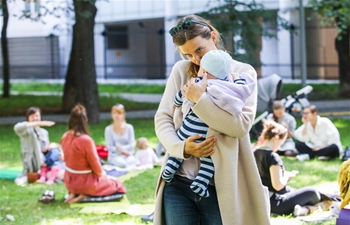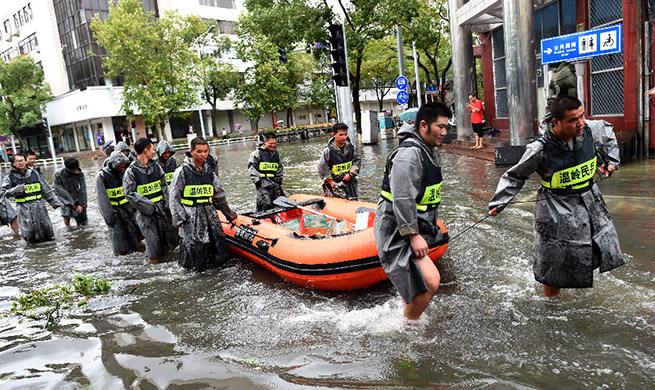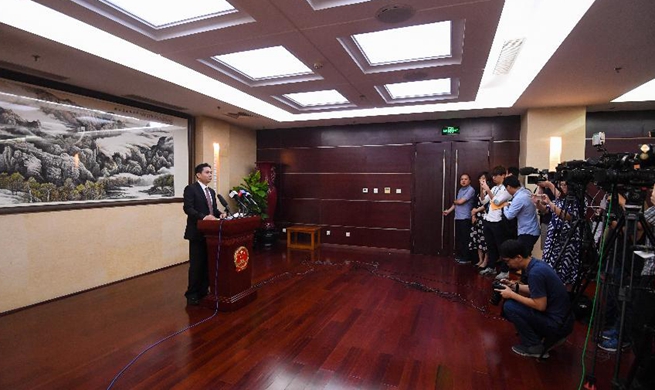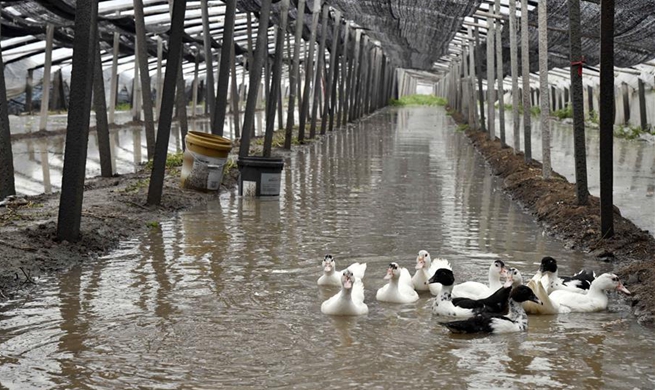BERLIN, Aug. 12 (Xinhua) -- Municipalities should be relieved of the costs for city cleaning, according to a joint press statement from the German Ministry for the Environment (BMU) and the German Association of Local Utilities (VKU) published on Monday.
"The trend towards more disposable articles is leading to a veritable flood of rubbish in some cities, especially in public parks and busy streets," noted German Environment Minister Svenja Schulze during the presentation of a joint approach with Michael Ebling, President of the VKU.
It was becoming "increasingly difficult" for German municipalities to keep streets, squares and parks clean and the costs had so far been borne by the general public, emphasized Schulze.
Based on the European Union (EU) disposable plastics directive adopted by members in May, the German Environment Ministry would create the conditions to ensure manufacturers of cigarettes, disposable cups and other disposable items paid for the cost of cleaning, Schulze stated.
"Those who earn their money with disposable articles should in future contribute to the costs of city cleaning," stressed Schulze.
The VKU announced that it wanted to determine the proportion of disposable articles in public waste bins, streets and parks.
In order to establish "a representative data basis for the proportional costs of the various disposable plastic products for public services," the composition of waste from various collection systems across Germany was being analyzed in a study, according to a paper from the VKU sent to Xinhua.
"Manufacturers will soon have to make a financial contribution to the consequences of their environmentally damaging throwaway business models," said Ebling.
"This will also create new incentives for all players to switch to low-waste alternatives," Ebling added.
On Sunday, Schulze had declared that she wanted to introduce a general ban on plastic bags in Germany.
A voluntary agreement with German industry to reduce the number of bags had already been "very successful," Schulze told the newspaper Bild.
The consumption of plastic bags in Germany had "fallen significantly since 2016," according to Schulze, who added that "we are now safeguarding this with the ban".
German Minister for Agriculture Julia Kloeckner opposed a ban, saying on Monday that "only bans, as the Greens want it, without having an answer as to what the alternative is" did not satisfy citizens.
Under the leadership of Kloeckner's department, alternatives to plastic bags made from renewable raw materials were "already being developed" and the aim was to offer alternatives through innovations, according to the German agriculture minister.













